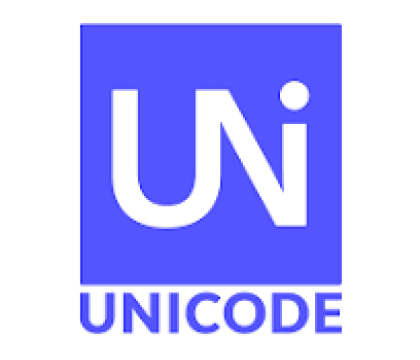SILICON-Unicode Internship Program
Through the SILICON-Unicode Internship Program, a Cardinal Quarter opportunity, Stanford undergraduate students can spend the summer working in full-time positions with the Unicode Consortium and participating in the Stanford Initiative on Language Inclusion and Conservation in Old and New Media (SILICON). This program is a rare chance to contribute to the advancement of Digitally Disadvantaged Languages and global linguistic inclusivity.
The SILICON-Unicode Internship Program was established to support the vital work of the Unicode Consortium and SILICON at Stanford University. This program embodies the spirit of collaboration and innovation, seeking to bridge the digital divide in language representation and support the inclusion of diverse linguistic communities in digital technologies.
Interns in this program will engage in interdisciplinary projects, collaborating with experts in linguistics, computer science, user-interface design, cultural studies, and more. They will contribute to efforts such as expanding the Unicode Standard for digital text and characters, designing user-friendly keyboards and fonts, and developing algorithms for digitizing texts in underrepresented languages.
Each intern receives a base stipend of $6500 to cover most of the essential costs associated with an unpaid service experience. Financial aid and supplemental funding are available to students who qualify.
This internship presents an extraordinary opportunity to work at the intersection of technology, culture, and social impact. It offers a platform for students to contribute to the advancement and preservation of global linguistic heritage, and to the development of more inclusive digital environments.
There are two positions available to work with the Unicode Consortium Research Team. The roles are fully virtual, with the possibility of attendance of July meetings in the Seattle area.
The specific projects would depend on the skills and interest of the students. Coders will focus on improvements in usability and/or performance for Digitally Disadvantaged Languages (DDL) use.
Desired skills include: Self-motivated, highly organized, detail-oriented, interested in global languages and technology, and able to connect with organizations for indigenous languages around the world. For those with a programming background (not required), experience with Java is a plus.
Per Unicode's policies, interns will be required to sign Unicode's Contributor License Agreement.
Eligibility:
For complete eligibility requirements, please review our program policies in its entirety.
Undergraduates from all academic disciplines are encouraged to apply, and applicants may vary in academic interests, public service involvement, and experience. Priority will be given to students who have completed fewer than two previous Cardinal Quarter opportunities. Graduating seniors will have lower priority. Students who have begun their coterm programs are not eligible to apply.
Requirements:
Selected fellows are expected to begin their fellowship following the completion of spring quarter classes and no later than July 8, 2024. All fellows are required to work with their community partners 35-40 hours/week for nine consecutive weeks. Fellows are expected to work on-site at their host organizations at least on a hybrid schedule, but some fully virtual experiences may be allowed on a case-by-case basis. Fellows must have a designated full-time professional staff member on-site as their supervisor/mentor. Please review the complete program policies for additional requirements. Other commitments include the following:
Spring Quarter
- Complete and online program orientation
- Complete the Engaging in Ethical and Effective Service in-person workshop or worksheet.
- Identify and meet with an academic mentor at least once.
- Design a personal learning plan and share the learning plan with the site supervisor and academic mentor.
- Complete all required pre-orientation forms.
- Optional but highly encouraged: Enrollment in the course "Digitally Disadvantaged Languages: How to Make the Digital Age Work for Everyone"
Summer
- Submit a brief preliminary report
- Submit a final report, complete a program evaluation, and correspond with fellowship donor(s) as requested by fellowships program staff.
Fall Quarter
- Meet with academic mentor at least once.
- Participate in outreach activities to share the experience and help publicize the program.
Selection Process:
For those who seek assistance, advising is available at the Haas Center to help students develop their applications.
This fellowship is intended for individuals whose application, references, and interview demonstrate
- an integration of the fellowship experience with applicant’s academic, personal and/or career goals
- prior demonstrated interest or involvement in the subject area, including related coursework
- a compelling match between applicant’s skills and interests and an organization’s work and needs
- strong potential for the fellowship experience to deepen a candidate’s understanding of an identified community issue or challenge
Complete applications are screened, finalists interviewed, and fellows selected by the host organizations staff with the intention to award fellowships prior to spring break. Applicants should respond promptly (within 48 hours) via email to a fellowship offer, or the offer will be rescinded. Once an applicant accepts a fellowship offer, the student should promptly notify all other Stanford and non-Stanford programs to which they have applied that they have accepted another offer and to withdraw their candidacy.
